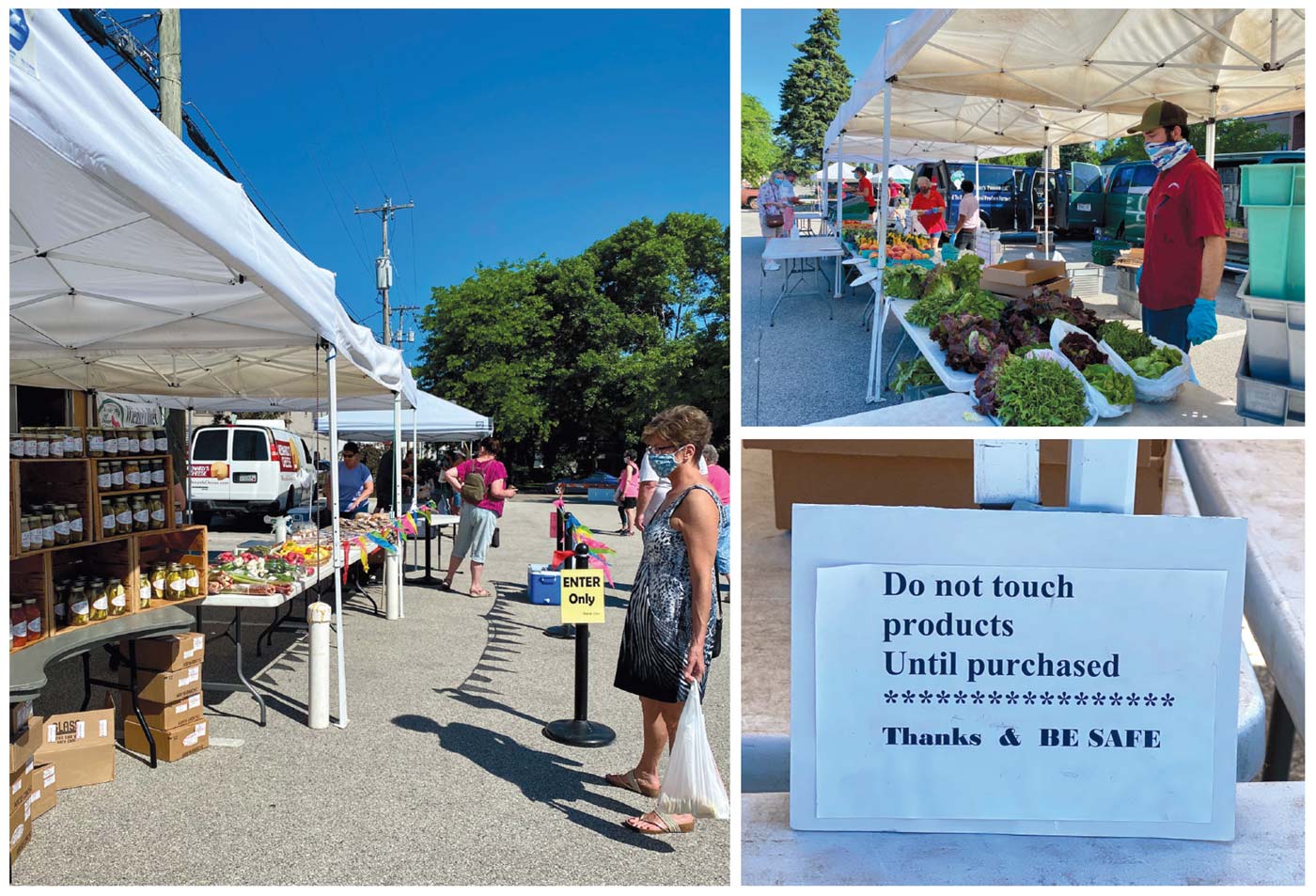A Summer Market Season like no other
The COVID-19 pandemic has changed so much of our lives, but few areas have been affected as much as those related to food.
If not closed altogether, restaurants have had to monitor table spacing. Some have gone to disposable menus, and many have instituted a take-and-go system initiated either by online ordering or phone calls.
Grocery stores have had to institute health guidelines to ensure the safety of their customers and the cleanliness of their products.
And farmers have had to deal with a reduction in demand for their products as the closure of schools and some restaurants has forced some to find other outlets, including pantries as the economic downturn brought on by the pandemic has hit many hard.
One popular outlet for farmers over the years has been farmers markets. They’ve gotten off to a slow start this year due to the pandemic and forced organizers to address the many health concerns related to conducting an outdoor market.
The impact could be seen at the Sturgeon Bay Farm Market on the Fourth of July as the normally bustling market was exercising additional spacing between booths. Sturgeon Bay was particularly hit hard by the fact that it normally features numerous craft artisans that have been significantly reduced this year.
The list of “best practices” implemented at markets this year by state and local health officials is significant.
As the season began, the list for the Saturday Green Bay Downtown Farmers Markets contained no less than 14 restrictions that closed seating intending for consuming food, prohibited food sampling, stressed social distancing and banned non-food vendors. Still others include eliminating entertainment, in part to encourage people to shop quickly and keep attendance down at any one particular time. Only vendors are permitted to touch produce before a sale, and spacing between vendors has been extended. Vendors are required to wear masks, which hopefully will extend to customers.
“The biggest change is in the overall feel and ambiance of the event,” said Kathryn Kroll, marketing manager for Downtown Green Bay Inc., which organizes the event. “This is no longer a beloved Saturday morning event, but more an outdoor grocery store. Instead of attending with family and friends and leisurely strolling amongst the vendors, we are encouraging attendees to get in and get what they need and go home.
Another big change is only allowing vendors selling essential items, so all prepared food vendors and arts and craft vendors are currently not allowed. We are hopeful as we go through the summer we will be able to add these vendors back in, as well as other features like live music and free yoga.”
Kroll said her event has been progressing nicely with some vendors doing well under the limitations.
“We are grateful for the community support of our market and vendors,” she added. “Given our capacity limitations, the crowds have been very manageable. We expect our attendance to continue to grow throughout the summer.”
Kroll said for those who are new to this alternative market, she recommends a visit to the Downtown Green Bay website (greenbay.com) for information related to all the changes.
Kroll admits the ever-changing impact of the virus will continue to present challenges to her and her staff.
“Our team has spent countless hours re-imagining the way we are able to put on our events,” Kroll said. “Whether it’s researching new guidelines and recommendations, brainstorming ways to maintain physical distancing or coming up with virtual alternatives, we are hard at work creating ways to connect our community to our downtown. As the pandemic continues, we will continue to come up with creative solutions to address the opportunities we are given.”
One of those online options is being implemented at the Appleton Downtown Farmers Market.
On its website, market organizers explain, “For an alternative way to shop the market and still support your local farm vendors from the comfort of your home, you can shop throughout the week direct with them and then pick it up Saturday mornings in the designated pickup location.” For more detailed information, visit appletondowntown.org.
According to its website, the Appleton market has placed extra importance on facemask usage, “strongly encouraging” shoppers to wear one. But one thing we’ve learned throughout this ordeal is that the pandemic and its demands on the public seem to be ever-changing.
“Farmers markets in Wisconsin provide a critical food resource, as well as an essential opportunity for farmers to connect with their communities,” writes the Wisconsin Department of Agricultural, Trade and Consumer Protection in the guidelines it issued in late May to farm market vendors and customers. “This is a rapidly evolving situation, so please continue to monitor Wisconsin DHS guidelines as they may change based on new scientific information and epidemiological data.”
Such is the situation our farmers markets find themselves in this summer, so it is best you monitor their websites and social platforms so you can support our farmers while doing it safely.





